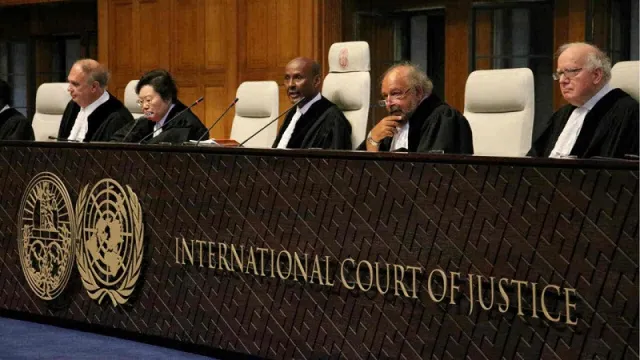Kenya should emulate South Africa's robust democracy

Kenya should emulate South Africa's robust democracy
In his book titled "Until We Have Won Our Liberty (South Africa after Apartheid)," Evan Lieberman contends that South Africa has successfully pursued dignified development, combining material growth with a respect for the rights and inherent equality of its people.
The country has also been building a robust set of democratic practices, earning repeated applause as a mature constitutional democracy in Africa.
Last week, South Africa became the first country to file a suit against Israel at the International Court of Justice (ICJ) in The Hague, escalating international pressure on Tel Aviv to halt the deadly and relentless bombardment of the Gaza Strip that began on October 7, 2023, resulting in the deaths of more than 22,000 civilians, a significant number of whom were children.
War in Gaza
This move is the latest in a series of actions taken by Pretoria since the commencement of the war on Gaza.
These actions include loudly and persistently condemning Israel’s attacks on Gaza and the West Bank, recalling the South African ambassador from Israel, referring the suffering of Palestinians to the International Criminal Court (ICC), and calling for an extraordinary meeting of BRICS countries to deliberate on the conflict.
According to the provisions of the Rome Statute, the ICC takes on cases of alleged crimes committed by individuals, not states.
In the 84-page suit, South Africa has accused Israel of committing genocide in Gaza, violating the 1948 Genocide Convention. The genocidal actions listed in the suit include the large-scale killing of Palestinians in Gaza, especially children; the destruction of their homes; their expulsion and displacement; as well as the enforcement of a blockade on food, water, and medical assistance to the Strip.
The accusations also encompass the imposition of measures preventing Palestinian births by destroying essential health services crucial for the survival of pregnant women and babies.
Read also: Ruto’s sword remarks and the fraying rule of law
ICJ to intervene
South Africa has also specifically requested that the ICJ urgently intervene to prevent Israel from committing further crimes in the Strip, likely by issuing an order for Tel Aviv to halt its invasion.
The ICJ, in a statement, mentioned that this request will be prioritized but did not specify a timeline. While the determination of the suit in the ICJ may take time, it offers a swift means of addressing the atrocities committed in Gaza by Israel.
South Africa serves as an example of a nation that emerged from darkness to eventually realize enlightenment, transitioning from Apartheid to the freedom of its people in 1994. This stands in contrast to Kenya's journey from the years after independence to the enactment and promulgation of the new Constitution in 2010.
Notably, since the end of apartheid in 1994, South Africa has been recognized as a proponent of human rights and a leader on the African continent. Recently, it should be acknowledged as a global human rights leader.
To achieve what South Africa has accomplished in the few years after Apartheid, Kenya should ensure that democratic values and practices remain deeply rooted, and progress toward open, transparent governance is expedited.
Human rights violations
Kenya has to be prepared to stand tall and defend against human rights violations internationally through the established international law frameworks. However, as charity begins at home, human rights should first be championed in Kenya, as this will enhance regional and international protections.
Kenya should strive to strengthen effective judicial systems independent of the whims of political leaders, which could otherwise influence the court's decisions. Judicial independence is crucial for any constitutional democracy, ensuring the separation of powers and promoting checks and balances.
Moreover, an independent judiciary is essential for enforcing the rule of law in the country. Additionally, like South Africa, fostering a vibrant and strong civil society would not only advocate for all individuals but also facilitate the protection of individual civil, political, economic, and social rights.
Many legal scholars have argued about the resemblance of South Africa’s and Kenya’s Constitutions. Many opine that the latter was wholly derived from the former's Constitution. The difference now lies in the implementation of both Constitutions. Kenya, therefore, should also emulate how South Africa has protected and implemented its Constitution.
Kithinji Nturibi is a law student at Mount Kenya University. Email: [email protected] | Twitter: @ClintonNturibi



